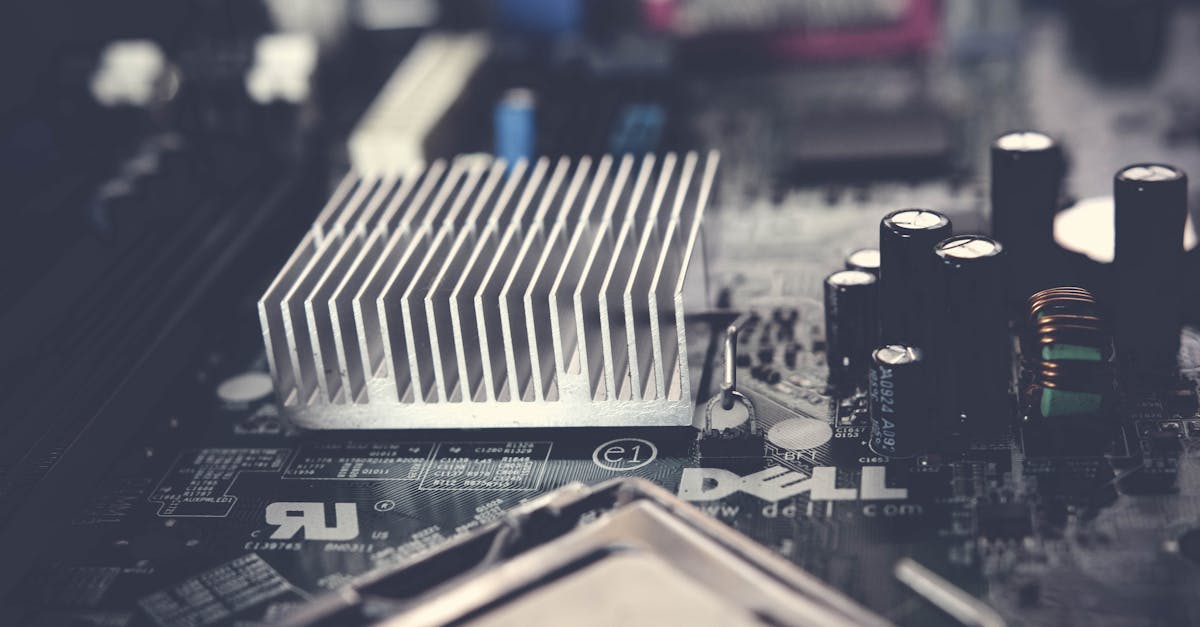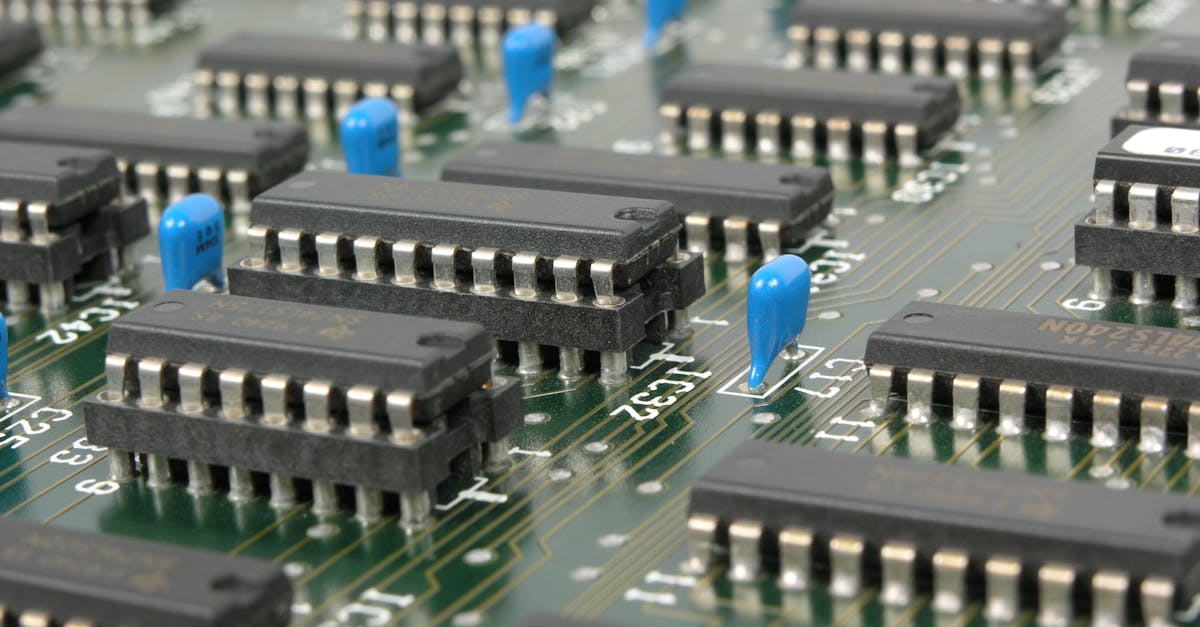Introduction: The Battle of the Mid-Range Processors
In today’s tech-savvy world, the choice between Intel and AMD processors often sparks heated debates among enthusiasts and professionals alike. This blog post dives deep into the comparison between two popular mid-range processors: Intel Core i5 and AMD Ryzen 5. Whether you’re building a new PC or upgrading an existing one, understanding the strengths and weaknesses of each processor can help you make an informed decision.
The Relevance of Processor Choice
When it comes to building or upgrading a PC, the processor is arguably the most crucial component. It’s common knowledge that the processor serves as the brain of your computer, handling tasks from basic web browsing to intensive gaming and content creation. Choosing the right processor can significantly impact your system’s performance, efficiency, and overall user experience.
Why This Comparison Matters
You might have experienced this: standing in an electronics store or browsing online, overwhelmed by the sheer number of processor options. To put it simply, Intel and AMD have been at the forefront of the processor market for years, and their mid-range offerings—Intel Core i5 and AMD Ryzen 5—are particularly popular among consumers.
Here’s a story: A friend of mine recently built a gaming PC and was torn between the Intel Core i5 and AMD Ryzen 5. After much research and debate, he finally made his choice. His experience inspired me to delve deeper into this topic and share my findings with you.
Performance: Speed and Efficiency
Clock Speeds and Cores
One thing I’ve learned is that both Intel Core i5 and AMD Ryzen 5 processors offer impressive performance, but they achieve it in different ways. Intel processors are known for their high clock speeds, which can translate to faster single-threaded performance. On the other hand, Ryzen processors typically offer more cores and threads, which can be beneficial for multi-threaded applications.
| Processor | Base Clock Speed | Max Turbo Speed | Cores | Threads |
|---|---|---|---|---|
| Intel Core i5-11600K | 3.9 GHz | 4.9 GHz | 6 | 12 |
| AMD Ryzen 5 5600X | 3.7 GHz | 4.6 GHz | 6 | 12 |
It’s interesting that both processors have the same number of cores and threads, yet the Intel Core i5 has a slightly higher base and turbo clock speed. This can make a noticeable difference in tasks that rely heavily on single-threaded performance, such as gaming.
Gaming Performance
From my point of view, gaming performance is a critical factor for many users. In various benchmarks, the Intel Core i5 often edges out the Ryzen 5 in games due to its higher clock speeds. However, the difference is usually marginal and may not be noticeable during actual gameplay.
I was struck by how well the Ryzen 5 performs in multi-threaded tasks, such as video editing and 3D rendering. This makes it a versatile choice for users who need a processor that can handle both gaming and productivity tasks.
Power Consumption and Thermal Efficiency
Another aspect to consider is power consumption and thermal efficiency. You’d be surprised to learn that AMD’s Ryzen processors are generally more power-efficient than their Intel counterparts. This means they generate less heat and can be easier to cool, which is an important consideration for those building compact or quiet systems.
In my opinion, if you’re planning to overclock your processor, the Ryzen 5 might offer better thermal headroom due to its lower power consumption.
Price and Value for Money
Initial Cost
When it comes to pricing, it’s clear that AMD has been aggressive in offering competitive prices for their Ryzen processors. The Ryzen 5 5600X, for example, is often priced lower than the Intel Core i5-11600K, making it an attractive option for budget-conscious buyers.
Long-Term Value
Here’s a thought: The initial cost of the processor is just one part of the equation. Long-term value includes factors such as performance longevity, upgrade paths, and compatibility with other components.
What’s fascinating is that AMD has committed to supporting their AM4 socket for several generations of processors, which means you might be able to upgrade to a future Ryzen processor without changing your motherboard. Intel, on the other hand, tends to change sockets more frequently, which could necessitate a new motherboard when upgrading.
Bundled Coolers
I couldn’t help but notice that AMD often includes a stock cooler with their Ryzen processors, which can save you money if you don’t plan to buy an aftermarket cooler. Intel’s K-series processors, like the Core i5-11600K, do not include a stock cooler, adding to the overall cost.
Compatibility and Ecosystem
Motherboards and Chipsets
One thing I’ve learned is that motherboard compatibility can significantly impact your build. AMD’s Ryzen processors are compatible with a wide range of motherboards, from budget to high-end models. Intel’s processors also offer a variety of compatible motherboards, but their frequent socket changes can limit upgrade options.
Memory Compatibility
You may already know that memory compatibility and performance can vary between Intel and AMD systems. Ryzen processors benefit from higher memory speeds and lower latency, which can improve overall system performance. Intel systems are generally less sensitive to memory speeds, but higher-speed RAM can still provide performance benefits.
PCIe Support
It’s worth mentioning that both Intel and AMD processors support PCIe 4.0, which offers faster data transfer speeds for compatible GPUs and NVMe SSDs. This is a significant advantage for users looking to future-proof their systems.
Real-World Use Cases
Gaming
I’ve noticed that gamers often prioritize single-threaded performance, making Intel Core i5 a popular choice. However, the Ryzen 5’s multi-threaded capabilities make it a strong contender, especially for those who also stream or record their gameplay.
Content Creation
From my experience, content creators who work with video editing, 3D rendering, or other multi-threaded applications may find the Ryzen 5 to be more efficient. Its additional cores and threads can handle demanding tasks more effectively.
Everyday Computing
I was just thinking about how most users engage in everyday computing tasks like web browsing, office applications, and media consumption. Both Intel Core i5 and Ryzen 5 processors are more than capable of handling these tasks with ease. The choice between them may come down to personal preference, budget, and specific use cases.
Making the Right Choice
Assessing Your Needs
As I see it, the first step in choosing between Intel Core i5 and AMD Ryzen 5 is to assess your specific needs. Are you primarily a gamer, a content creator, or a general user? Understanding your primary use case can help you determine which processor will provide the best performance for your needs.
Budget Considerations
I couldn’t help but notice that budget plays a significant role in the decision-making process. While the Ryzen 5 may offer better value for money, the Intel Core i5’s higher single-threaded performance might justify the additional cost for some users.
Future-Proofing
Now that I think about it, future-proofing your system is another important consideration. AMD’s commitment to supporting their AM4 socket for multiple generations can provide a smoother upgrade path. Intel’s frequent socket changes may require more frequent motherboard upgrades.
Personal Preference
You might relate to this: sometimes, brand loyalty or personal preference can influence your decision. Both Intel and AMD have their loyal fan bases, and your past experiences with either brand might sway your choice.
Wrapping Up: Making an Informed Decision
To put it simply, choosing between Intel Core i5 and AMD Ryzen 5 comes down to your specific needs, budget, and preferences. Both processors offer excellent performance, but they excel in different areas. By understanding the strengths and weaknesses of each, you can make an informed decision that best suits your requirements.
Here’s a funny thing: no matter which processor you choose, you’ll likely end up with a powerful and capable system. Both Intel and AMD have made significant strides in recent years, and their mid-range offerings are a testament to their commitment to delivering high-quality products.
One time, I helped a friend build a PC with an AMD Ryzen 5 processor, and he was thrilled with the performance. On that note, another friend opted for an Intel Core i5 and was equally satisfied. It reminds me of how personal and subjective the choice can be.
You’d be surprised at how much difference a well-researched decision can make. So, take your time, consider your options, and choose the processor that best aligns with your needs and preferences.
Happy building! 🚀










